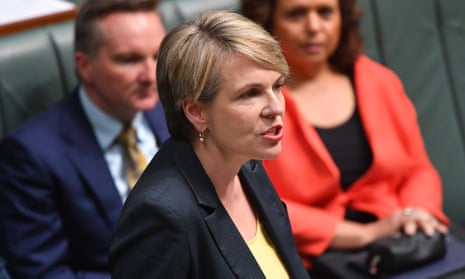Labor has promised to restore the Australian Bureau of Statistics’ time use survey to measure unpaid and domestic work, which is disproportionately done by women.
The shadow minister for women, Tanya Plibersek, will announce on Tuesday that if elected Labor would give the ABS $15.2m over 10 years to conduct the survey in 2020 and 2027, more than a decade after the last survey in 2006.
Time use surveys are conducted in most advanced economies and are an important measure of the value of unpaid work and the gender inequity in domestic work such as caring for children and the elderly.
Data from the time use survey informs policy in areas including workforce participation, parental leave, family payments, childcare, transport, education, health, disability, ageing and the black economy.
The ABS axed time use surveys in 2013 citing the Gillard government’s public service efficiency dividend. Women’s groups including the National Foundation for Australian Women have consistently lobbied since for the survey to be restored.
In a statement before the announcement, Plibersek said “the Australian economy [and] Australian society rests upon women’s unpaid work”.
Citing 2016 census figures, Plibersek said the typical Australian woman spends up to 14 hours a week cooking, cleaning and organising her family while the typical man does fewer than five hours.
“Women do three-quarters of the childcare, two-thirds of the housework and 70% of caring for elderly or disabled family members and friends,” she said. “But Australia has no way of calculating the value to the economy of that unpaid caring work.
“As Marilyn Waring – the founder of feminist economics – once said, ‘what we don’t count, counts for nothing’.”
In 1997 unpaid work was worth $261bn, equivalent to almost half of Australia’s GDP that year, Plibersek said.
Plibersek said that women for the most part do not begrudge unpaid work because of the “joy in caring for those you love” but it leads to lower pay at work, more time off and a tendency to work part-time, all of which add to the gender pay gap.
The shadow women’s minister suggested restoration of the time use survey would increase the value society places on caring work and could lead to men taking greater responsibility for domestic work.
The National Foundation for Australian Women founding member and social policy committee chairwoman Marie Coleman told Guardian Australia time use surveys were an “important measure” not just for gender equity but also productivity because they measure work not picked up by national accounts.
Coleman said the patterns of behaviour measured by time use surveys inform “all kinds of public policy”.
She cited the example of a government being able to measure whether road user charges would disproportionately impact men or women.
“It certainly would [create political capital] for making workplaces more family friendly for men and women,” she said. “It is very difficult to get reasonable data about who gets access to time off to take the kids to the doctors, or sport.
“A time use survey would [give us] a far better picture of the time spent on parenting and help employers develop appropriate policies to make work more family friendly.”
Coleman called on the Coalition government to match Labor’s policy.
